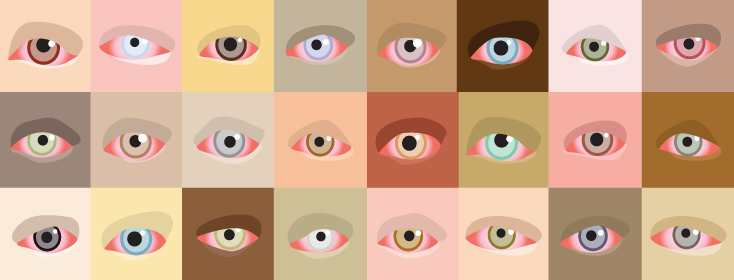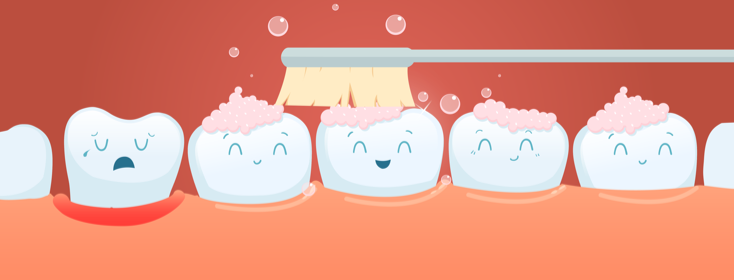Strangest Psoriasis Symptoms
Psoriasis is a challenging diagnosis to live with, especially because what it looks like can change so wildly from person to person. It can show up in parts of the body where you least expected it. It can affect your eyes, your mouth, and many other places in the body.
Check out those eyes!

People diagnosed with psoriasis and psoriatic arthritis are at an increased risk of developing eye problems.
It is recommended that people with psoriasis get checked out by an ophthalmologist (a specialist in medical and surgical eye problems) immediately if they begin exhibiting symptoms such as vision blurring, vision loss, or other problems with your eyes.1
Treatment options for psoriasis in the eye
Psoriasis can affect the eyelids or eyelashes which can be difficult to experience since the area around the eyes can be very sensitive. Those who have psoriasis on the eyelids may have scales that flake off and stick to the person's eyelashes.
Inflammation may occur around the edges of the eye as well as redness and the skin may become crusty. Some may even experience the eyelashes turning up or down and causing them to rub against the eyeball due to prolonged inflammation.
This area can be tricky to treat as some topical treatments can cause more severe issues, such as cataracts or glaucoma, or increased irritation if they get into the eye.2
Psoriasis and peridontal disease

It makes sense that inflammation from psoriasis, on top of normal bodily bacterial responses, could exacerbate and increase the incidence of periodontal disease.
Several studies have been done over the years that compare the rate of periodontal disease markers in healthy individuals to those with psoriasis. A staggering correlation has been found that suggests that people with psoriasis are nearly 4.4 times more likely to develop periodontal disease, especially in its more severe forms than their healthy counterparts.5
The impact of psoriasis on the mouth
In addition to periodontitis, there have been findings of psoriasis developing in the mouth and on the face, this includes the cheeks, lips, and even the tongue.
This may occur for some during a flare up and symptoms may include inflammation and redness which can make it difficult to swallow or chew if the symptoms occur inside the mouth. Others may experience discoloration of the tongue which may be either white, yellow or gray lesions.6
The impact of hearing loss and psoriasis

Psoriasis can occur either internally or externally on the ear. Internally people may experience a build-up of scales within the ear canal. This build-up can cause issues with hearing impairment or loss.
Treatment options
Some find it helpful to get their ears cleaned out by a doctor to help ease the discomfort or hearing impairment caused by the build-up.
Some psoriasis treatments should not be used inside the ear as the eardrum is delicate and could be harmed by some topical treatment options. Externally people may develop scales around the ear and on the face and scalp.
Microbiome & gut health

A new frontier of research is taking place regarding the microbiome and psoriasis. New research is examining if the microbiota on the skin or in the gut is a contributor to flare-ups. Microbiota lives in the stomach, intestines, and on the skin and is made up of fungi, bacteria, and other single-cell organisms.
Microbiota help digest food by breaking it down into things the body can use such as enzymes and vitamins, they can also assist in warding off infections. The system of microbiota and the body are known as the microbiome.7
Understanding the research
Researchers are taking a look at whether or not certain autoimmune conditions such as psoriasis and psoriatic arthritis are linked to a disturbance in the microbiome. Studies are examining differences in the individual's microbiome and whether or not that has an effect on immune responses, for psoriasis patients this can include responses such as flare-ups.7
Other studies include an examination of the microbiota that resides on the skin and the connection to triggering inflammatory responses that account for psoriasis skin symptoms.8
What strange symptoms do you experience?
We know that psoriasis is so much more than just chronic inflammation and itchy skin. There are a number of other symptoms of psoriasis that people don’t often talk about. Do you have any strange psoriasis symptoms?
Join the conversation